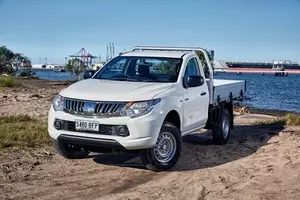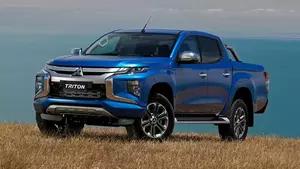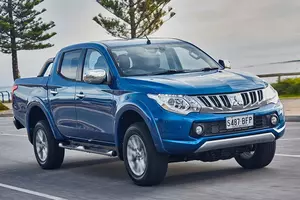
| Vehicle | Curb weight | Difference from world's smallest | Weight to power ratio | 0—60 mph acceleration ratio | Consumption ratio |
|---|---|---|---|---|---|
| 2.4L D4 |
1679 kg / 3702 lbs |
1254 kg (2765 lbs) heavier | 9 kg to 1 hp | - |
195 kg/L (430 lbs/L) |
| 2.4L S4 |
1436 kg / 3166 lbs |
1011 kg (2229 lbs) heavier | 11 kg to 1 hp | - |
126 kg/L (278 lbs/L) |
| Vehicle | 2.4L D4 |
|---|---|
| Curb weight |
1679 kg / 3702 lbs |
| Difference from world's smallest | 1254 kg (1254 lbs) heavier |
| Weight to power ratio | 9 kg to 1 hp |
| 0—60 mph acceleration ratio | - |
| Consumption ratio |
195 kg/L (430 lbs/L) |
| Vehicle | 2.4L S4 |
| Curb weight |
1436 kg / 3166 lbs |
| Difference from world's smallest | 1011 kg (1011 lbs) heavier |
| Weight to power ratio | 11 kg to 1 hp |
| 0—60 mph acceleration ratio | - |
| Consumption ratio |
126 kg/L (278 lbs/L) |

| Vehicle | Curb weight | Difference from world's smallest | Weight to power ratio | 0—60 mph acceleration ratio | Consumption ratio |
|---|---|---|---|---|---|
| 2.4L D4 |
1774 kg / 3912 lbs |
1349 kg (2975 lbs) heavier | 10 kg to 1 hp | - |
225 kg/L (496 lbs/L) |
| Vehicle | 2.4L D4 |
|---|---|
| Curb weight |
1774 kg / 3912 lbs |
| Difference from world's smallest | 1349 kg (1349 lbs) heavier |
| Weight to power ratio | 10 kg to 1 hp |
| 0—60 mph acceleration ratio | - |
| Consumption ratio |
225 kg/L (496 lbs/L) |

| Vehicle | Curb weight | Difference from world's smallest | Weight to power ratio | 0—60 mph acceleration ratio | Consumption ratio |
|---|---|---|---|---|---|
| 2.4L D4 |
1926 kg / 4247 lbs |
1501 kg (3310 lbs) heavier | 11 kg to 1 hp | - |
224 kg/L (494 lbs/L) |
| Vehicle | 2.4L D4 |
|---|---|
| Curb weight |
1926 kg / 4247 lbs |
| Difference from world's smallest | 1501 kg (1501 lbs) heavier |
| Weight to power ratio | 11 kg to 1 hp |
| 0—60 mph acceleration ratio | - |
| Consumption ratio |
224 kg/L (494 lbs/L) |

| Vehicle | Curb weight | Difference from world's smallest | Weight to power ratio | 0—60 mph acceleration ratio | Consumption ratio |
|---|---|---|---|---|---|
| 2.4L D4 |
1813 kg / 3998 lbs |
1388 kg (3061 lbs) heavier | 10 kg to 1 hp | - |
211 kg/L (465 lbs/L) |
| Vehicle | 2.4L D4 |
|---|---|
| Curb weight |
1813 kg / 3998 lbs |
| Difference from world's smallest | 1388 kg (1388 lbs) heavier |
| Weight to power ratio | 10 kg to 1 hp |
| 0—60 mph acceleration ratio | - |
| Consumption ratio |
211 kg/L (465 lbs/L) |

| Vehicle | Curb weight | Difference from world's smallest | Weight to power ratio | 0—60 mph acceleration ratio | Consumption ratio |
|---|---|---|---|---|---|
| 2.4L D4 |
1848 kg / 4075 lbs |
1423 kg (3138 lbs) heavier | 10 kg to 1 hp | - |
220 kg/L (485 lbs/L) |
| Quest 2.5L |
1600 kg / 3528 lbs |
1175 kg (2591 lbs) heavier | 15 kg to 1 hp | - | - |
| Vehicle | 2.4L D4 |
|---|---|
| Curb weight |
1848 kg / 4075 lbs |
| Difference from world's smallest | 1423 kg (1423 lbs) heavier |
| Weight to power ratio | 10 kg to 1 hp |
| 0—60 mph acceleration ratio | - |
| Consumption ratio |
220 kg/L (485 lbs/L) |
| Vehicle | Quest 2.5L |
| Curb weight |
1600 kg / 3528 lbs |
| Difference from world's smallest | 1175 kg (1175 lbs) heavier |
| Weight to power ratio | 15 kg to 1 hp |
| 0—60 mph acceleration ratio | - |
| Consumption ratio | - |

| Vehicle | Curb weight | Difference from world's smallest | Weight to power ratio | 0—60 mph acceleration ratio | Consumption ratio |
|---|---|---|---|---|---|
| 2.5 DI-D |
1590 kg / 3506 lbs |
1165 kg (2569 lbs) heavier | 14 kg to 1 hp | - | - |
| Vehicle | 2.5 DI-D |
|---|---|
| Curb weight |
1590 kg / 3506 lbs |
| Difference from world's smallest | 1165 kg (1165 lbs) heavier |
| Weight to power ratio | 14 kg to 1 hp |
| 0—60 mph acceleration ratio | - |
| Consumption ratio | - |